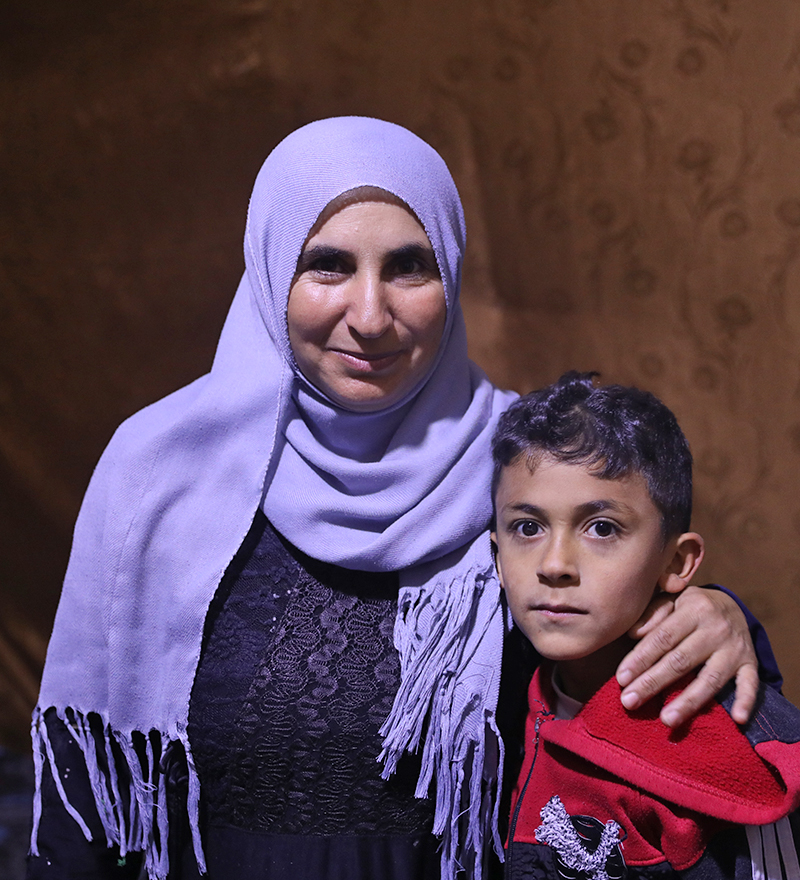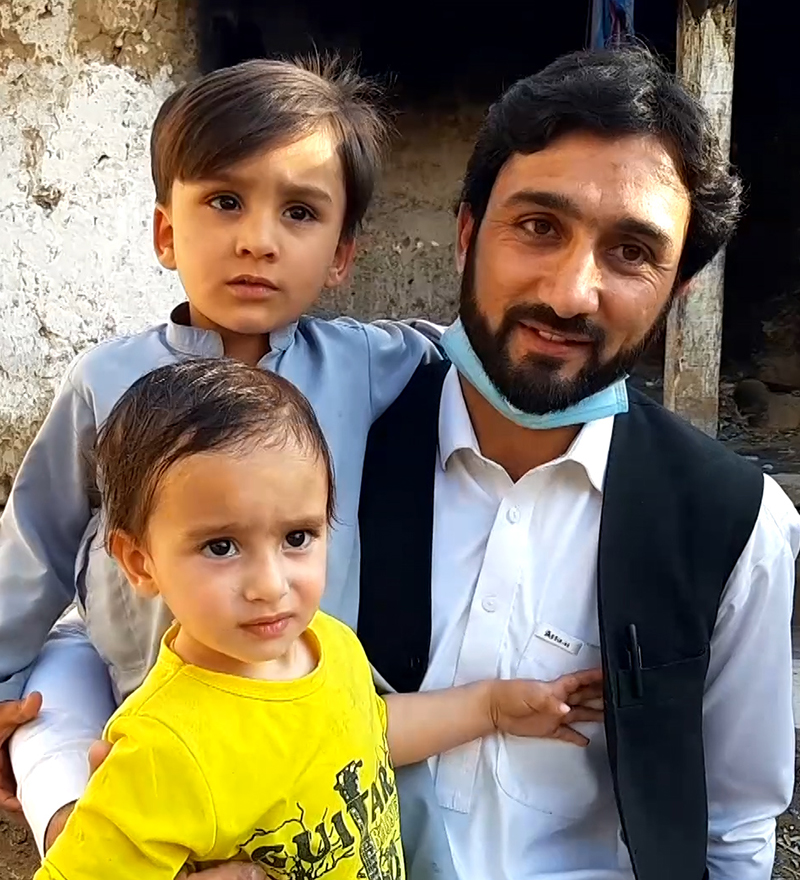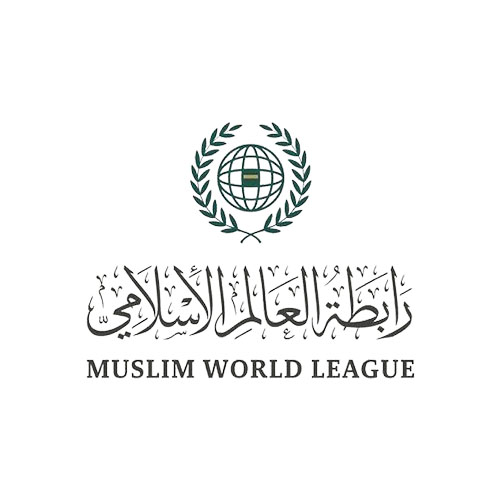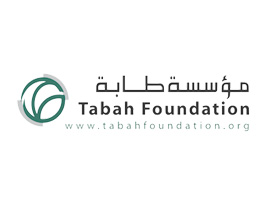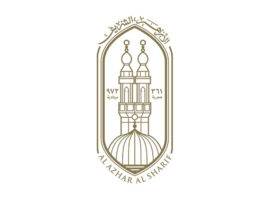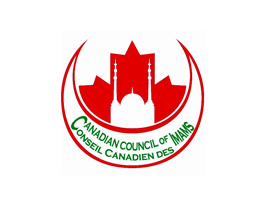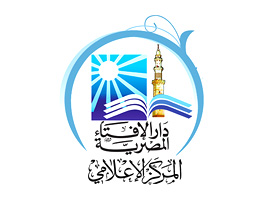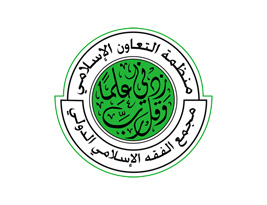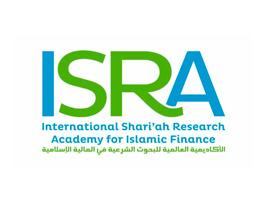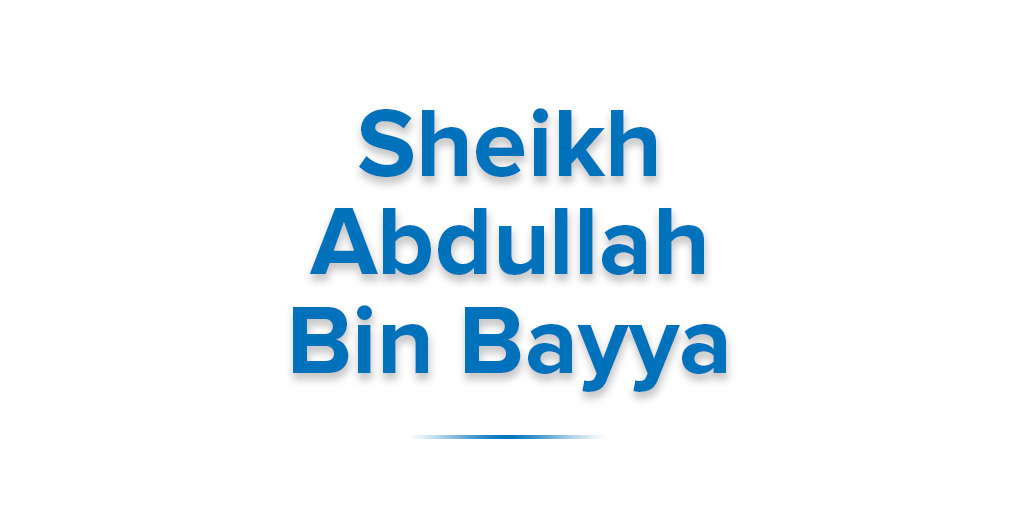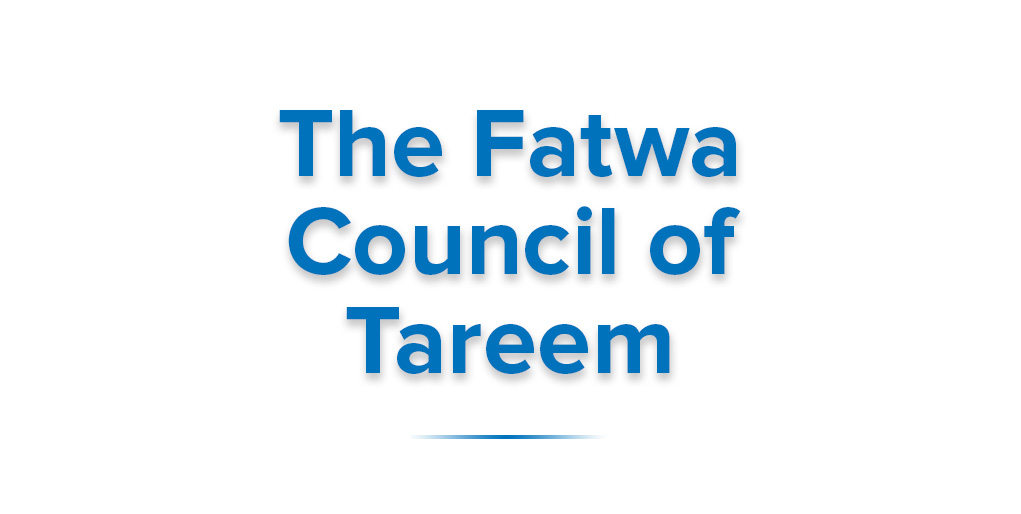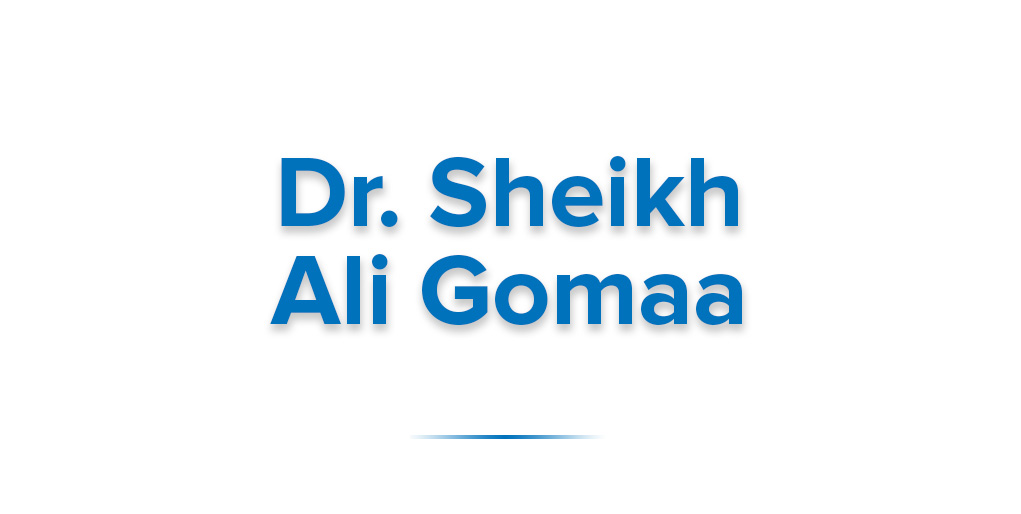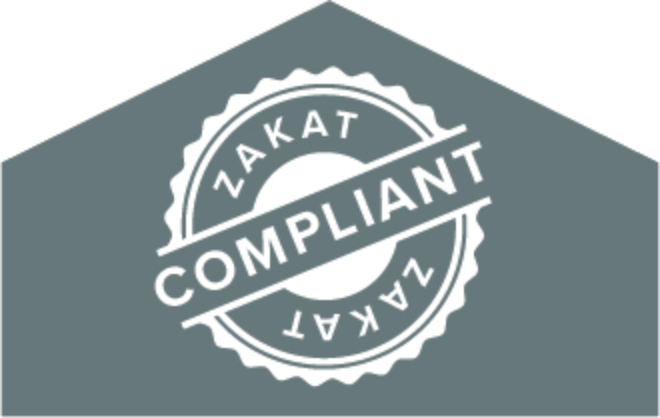
Islamic Philanthropy 2021 Mid-Year Report
I affirm MWL’s pride in its partnership with UNHCR, which plays a central role among international organisations in promoting the values of human solidarity.
Foreword by Sheikh Dr. Mohammad bin Abdulkarim Al-Issa, Secretary-General of the Muslim World League
Thanks to the support of our partners and donors, UNHCR estimates the number of beneficiaries of Zakat and Sadaqah funds it received during the first half of 2021 at more than 584,000 people, located in 12 countries.
Foreword by Khaled Khalifa, Regional Representative to the GCC Countries – Senior Advisor to the High Commissioner on Islamic Philanthropy
UNHCR’s 2021 Islamic Philanthropy Mid-Year Report is being launched jointly with the Muslim World League, one of UNHCR’s prominent Islamic Philanthropy partners globally.
Executive Summary
Impact of the Refugee Zakat Fund
Zakat and Sadaqah Distribution Countries
Impact Stories
Islamic Philanthropy in the Service of

Key Highlights
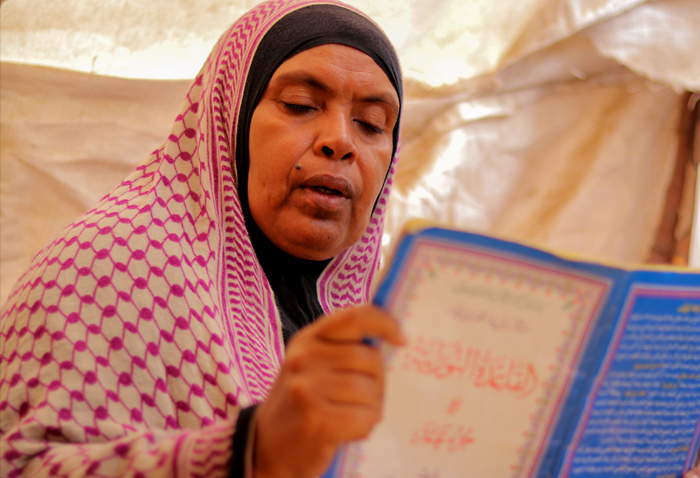
Ramadan Campaign
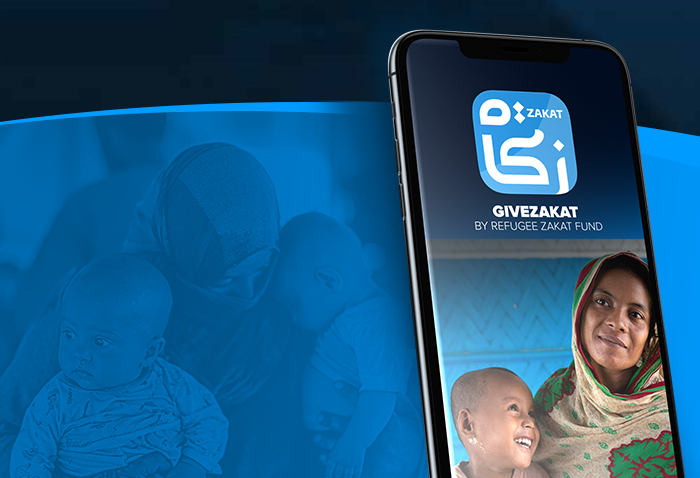
The Refugee Zakat Fund App
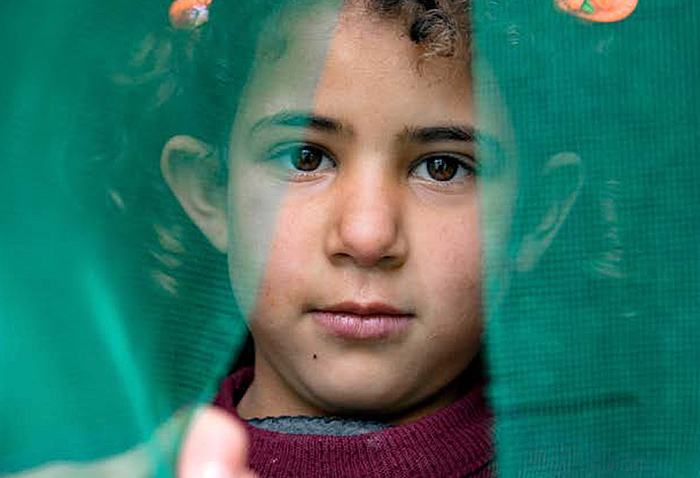
Annual Report Launch
Islamic Philanthropy Partners Across the Globe
Partnerships In Focus
Muslim World League
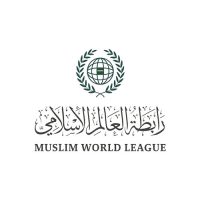
The Muslim World League (MWL) has been one of the most instrumental international non-governmental Islamic organisations in the world since its conception on May 18, 1962, following a resolution adopted during a meeting of the World Muslim Congress.
Sheikh Thani Bin Abdullah Bin Thani Al Thani Humanitarian Fund
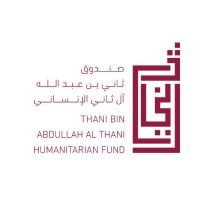
The Sheikh Thani Bin Abdullah Bin Thani Al Thani Humanitarian Fund is a global fund established in 2019 to assist the most vulnerable populations worldwide through collaboration with UNHCR and other humanitarian organizations.
The Refugee Zakat Fund
The Refugee Zakat Fund, established in 2019 by UNHCR, has been a key partnership mechanism – trusted by institutions and individuals. More than 2 million beneficiaries across 13 countries were supported through Zakat and Sadaqah in 2020, up from just over 1 million beneficiaries in 2019, and more than 34,000 during the pilot phase in 2017-2018. In the first half of 2021, more than 584,000 beneficiaries were supported. Since 2017, a total of $146.67 million had been received through the Refugee Zakat Fund, 85% of which was Zakat.
Trusted:
Compliant:
Effective:
Executive Summary
UNHCR’s 2021 Islamic Philanthropy Mid-Year Report is being launched jointly with the Muslim World League, one of UNHCR’s prominent Islamic Philanthropy partners globally. With Zakat and Sadaqah donations received in the first half of 2021 through UNHCR’s Refugee Zakat Fund, UNHCR will assist more than 584,000 beneficiaries in 12 countries. A sizable portion of these donations was provided by Sheikh Thani bin Abdullah bin Thani Al Thani Humanitarian Fund for the third year in a row. Despite some challenges, notably those caused by the COVID-19 pandemic, UNHCR forged new strategic partnerships and continued distribution activities uninterrupted.
Between January and June 2021, the Refugee Zakat Fund received almost $19.4 million in Zakat funds, which will help approximately 490,000 refugees and internally-displaced persons (IDPs) by the end of this year, following its 100% Zakat distribution policy. Similarly, over $8 million in Sadaqah funds will help more than 96,000 beneficiaries. UNHCR’s 2021 Global Ramadan Campaign, “Every Gift Counts”, launched in conjunction with the issuance of the annual Islamic Philanthropy report, played an essential role in driving this impact.
This year’s Global Ramadan Campaign witnessed the introduction of two new initiatives: 1) the option to donate Zakat al-Fitr to refugees, which was added to UNHCR’s digital Zakat platform; and 2) UNHCR’s mobile application GiveZakat, which, as a new technology tool, proved essential in engaging new audiences and raising much needed funds during the month of Ramadan and beyond.
Several Islamic institutions and organizations have endorsed the credibility and compliance of UNHCR’s Refugee Zakat Fund. In the first half of 2021, the Muslim World League’s Islamic Fiqh Council, Al-Azhar’s Islamic Research Academy, the International Academy for Sharia Research (ISRA), and the Canadian Council of Imams (CCI) issued fatwas further authorizing UNHCR to receive and distribute Zakat to refugees and IDPs.
In line with its ongoing and long-term commitment to the cause of displaced people worldwide, the Muslim World League has provided a generous contribution in support of the most vulnerable internally displaced children in Northeastern Nigeria.
Well ahead of every winter season, UNHCR carries out its winterization programme to provide critical support to refugees and IDPs. This year, UNHCR’s needs amount to $193.4 million to provide 3.3 million refugees and IDPs in the MENA region with core winter relief items, cash support, and help in weatherproofing their homes. UNHCR is well-positioned to channel Zakat and Sadaqah funds through its winterization programme for families who rely on our help to stay safe and warm.
Last year, UNHCR’s winterization programme helped provide emergency assistance as well as cash and in-kind winter assistance to 2.5 million refugees and IDPs in Lebanon, Jordan, Iraq, Syria and Egypt.
Foreword by UNHCR
Dear reader,
UNHCR is launching its Islamic Philanthropy 2021 Mid-Year report, in collaboration with the Muslim World League, who for years have been one of our most prominent partners in humanitarian work. Today, the number of forcibly displaced people, whether refugees, internally displaced persons (IDPs) or asylum seekers, stands at more than 84 million worldwide. A vast majority of them suffer from poverty, and the COVID-19 pandemic has further exacerbated their hardships. Forcibly displaced people today, more than ever, are in dire need of protection from hunger, disease, and climate change, not to mention wars and displacement.
In light of this, UNHCR has increased its cash assistance globally to those most in need, especially through the Refugee Zakat Fund. The Refugee Zakat Fund maintains a 100% distribution policy of Zakat funds to eligible beneficiaries among refugees and IDPs, most of whom originate from the Organisation of Islamic Cooperation (OIC) member countries. The Refugee Zakat Fund is backed by several fatwas that allow UNHCR to receive and distribute Zakat funds through a strict governance mechanism that ensures transparency in the distribution process and compliance with the provisions of Zakat. We present to you, accordingly, UNHCR’s Islamic Philanthropy Mid-Year Report, which highlights the impact of Zakat and Sadaqah funds on the lives of refugees and IDPs. We have also made drastic changes to how this report is presented, and we hope you will like it.
Thanks to the support of our partners and donors, UNHCR estimates the number of beneficiaries of Zakat and Sadaqah funds it received during the first half of 2021 at more than 584,000 people, located in 12 countries: Jordan, Lebanon, Iraq, Yemen, Egypt, Mauritania, Nigeria, Pakistan, India, Bangladesh, Syria and Malaysia. This assistance was made possible thanks to generous Zakat and Sadaqah donations from around the world, which amounted to over $27.5 million, reinforcing the role of Muslim communities and their support for displaced people, especially in light of deteriorating economic conditions due to the COVID-19 pandemic.
As UNHCR continues to receive support from partners and donors amidst economic hardship, I would like to extend my heartfelt thanks to all our contributors worldwide. I would especially like to extend my gratitude to the Muslim World League for their sustained support of refugees and IDPs, their confidence in our work and our ability to reach those most in need, especially in conflict areas, as well as their fatwa that allows UNHCR to collect and distribute Zakat funds to eligible beneficiaries through the Refugee Zakat Fund, per Zakat rules.
Finally, with the continuous increase in humanitarian needs among refugees and displaced people, we invite you to dedicate your Sadaqah and Zakat to this vulnerable group. Your donation will contribute to providing shelter, heating, and other necessities to those most in need. May we, together, contribute to helping a family and put a smile on the face of its children.
Thank you.
Khaled Khalifa, Regional Representative to the GCC Countries and Senior Advisor to the High Commissioner on Islamic Philanthropy
Foreword by Muslim World League
Assalamu alaykum,
I would like to greet this honourable gathering in this important launch of the Islamic Philanthropy 2021 Mid-Year Report. It is a breakthrough that undoubtedly adds a new achievement in the long process of partnership between the Muslim World League and UNHCR.
I would like to start by emphasizing the pride of the Muslim World League, which is an actor in the relief, care and development fields, providing its humanitarian services to all, of course, without discrimination in this regard. This is according to a purely humane standard, regardless of their religion, race or other affiliations. I affirm MWL’s pride in its partnership with UNHCR, which plays a central role among international organisations in promoting the values of human solidarity. This partnership has been, and will always be, fruitful, Allah willing, in supporting a large number of refugees or internally displaced persons.
The UNHCR report that we are addressing today sheds light on a very important issue, which is the humanitarian impact of Zakat and Sadaqah funds, and partnerships with Islamic institutions, to help those most in need among refugees and displaced persons. It falls within the most important axes of MWL’s philanthropy strategy, and its developmental endeavour to transfer it to broader horizons towards the optimal investment of its resources and channels of distribution. In this context, the General Secretariat of the Islamic Fiqh Council of the MWL confirmed the permissibility of authorizing UNHCR’s Refugee Zakat Fund to receive and distribute Zakat funds to those who deserve it among refugees and displaced persons. This is one example among several initiatives and measures taken by UNHCR in this context, to modernize Islamic philanthropy in its comprehensive humanitarian horizon and its mechanisms in light of the objectives of Islamic Sharia. This is, of course, in fulfilment of the MWL’s Islamic and humanitarian duty, first by aiding those in need wherever they are, as an embodiment of the great religious moral principle in the words of our Noble Messenger Muhammad, may Allah’s blessings and peace be upon him, “A reward is given in connection with every living creature.” Second, it is a fulfilment of the message of the Muslim World League of introducing the whole world to the correct values of Islam in its human and civilized dimension, including love and mercy for every human being, no matter who this human being is.
The Muslim World League, based on its charter, which calls upon all nations to strive towards the good and happiness of humanity, the achievement of justice among its members, the realization of an ideal human society, and support for everything that calls for good, seeks, through this great value and solid foundation of the MWL, to establish bridges of humanitarian cooperation with all concerned organisations. It also continues to implement the contents of the Makkah Document, which calls for combating ignorance, hunger, poverty, disease, racial discrimination, environmental degradation, etc., by translating it into effective field programs, initiatives, and partnerships. Our partnership with UNHCR serves as a good example of this. Last year in August, we provided support for a project that aimed to provide a suitable environment for children and youth through educational activities in Sudan, Ethiopia, and others, within our multiple programs directed to serving thousands of students around the world. This year, we have renewed our support for UNHCR programs aimed at protecting the most vulnerable displaced children in Nigeria. By the grace of Allah, the aid will reach about 3,700 beneficiaries during the current year. Through this blessed partnership, we are looking for more achievements, Allah willing.
In conclusion, I renew the commitment of the Muslim World League to maintain its close partnership with the United Nations in its various activities for the good of people in everywhere, with its sincere wishes and prayers that the efforts of all will be fruitful and successful.
Assalamu alaykum.
Sheikh Dr. Mohammad bin Abdulkarim Al-Issa, Secretary-General of the Muslim World League
Muslim World League
The Muslim World League (MWL) has been one of the most instrumental international non-governmental Islamic organisations in the world since its conception on May 18, 1962, following a resolution adopted during a meeting of the World Muslim Congress. The League is headquartered in the Holy City of Mecca, serving as one of the most renowned charitable foundations in the Kingdom of Saudi Arabia, due to its unwavering commitment to providing humanitarian aid to all those in need, and its capabilities that enable it to reach people in need around the world. The MWL aims to “present the true Islam and its tolerant principles, provide humanitarian aid, extend bridges of dialogue and cooperation with all, engage in positive openness to all cultures and civilisations, follow the path of centrism and moderation to realise the message of Islam and ward off movements calling for extremism, violence and exclusion for a world full of peace, justice and coexistence.”
UNHCR is honoured to partner with such a prestigious institution to collaborate with on various initiatives including the advancement of Islamic Philanthropy in service of displaced communities. The partnership with MWL was first initiated in 2018 when UNHCR provided a training session to various MWL staff members on international refugee assistance and protection, camp management, human resource development, and community awareness. Since 2020, MWL has been supporting several UNHCR field programmes in Africa. MWL’s Islamic Fiqh Council issued a fatwa endorsing the eligibility of UNHCR’s Refugee Zakat Fund to receive and distribute Zakat funds to refugees and internally displaced persons (IDPs), as long as the current governance approach continue to be followed. This multi-faceted strategic collaboration has enabled UNHCR and its Refugee Zakat Fund to further enforce its credibility in the Islamic world at large.
Along with their public support, and for two years in a row, MWL has provided substantial financial contributions towards different projects in Africa. In 2020, MWL made an important donation in support of displaced youth and children as part of the Live, Learn, and Participate project in Sudan and Ethiopia. The overall objective of this project was to enhance protection and support services for vulnerable children and youth, including access to education, livelihoods training, alternative care, and family reunification. MWL made a second donation in 2021 to support activities under the Child Protection Interventions Project for internally displaced children in North-eastern Nigeria. UNHCR engages with specific communities’ cultural and religious leaders to advocate for child participation in this project. The project also includes training for teachers and caretakers on child protection and combatting trafficking, in addition to conducting radio talk shows to emphasise the dangers of child trafficking and disappearance.
UNHCR is committed to maintain and grow the relationship with MWL in order to maximize sustainable impact on vulnerable displaced communities, and to further highlight the role of Islamic Philanthropy in aiding refugees and IDPs.
Sheikh Thani Bin Abdullah Bin Thani Al Thani Humanitarian Fund
The Sheikh Thani Bin Abdullah Bin Thani Al Thani Humanitarian Fund is a global fund established in 2019 to assist the most vulnerable populations worldwide through collaboration with UNHCR and other humanitarian organizations. In April 2019, H.E Sheikh Thani Bin Abdullah Bin Thani Al Thani made a landmark Zakat contribution of more than $35 million in support of Rohingya refugees in Bangladesh and displaced Yemenis through the fund. This was the largest contribution UNHCR had ever received from an individual donor and the first major Zakat contribution of its kind in the organization’s history. A total of approximately 875,000 Rohingya refugees and Yemeni IDPs, returnees, and members of the host community were supported through this generous contribution.
In light of this generous and exceptional contribution to UNHCR, H.E. Sheikh Thani Bin Abdullah Bin Thani Al Thani was appointed as UNHCR Eminent Advocate in October 2019. His unwavering commitment and dedication to supporting those forcibly displaced has contributed to improving the lives of hundreds of thousands of women, men, and children around the world.
In 2020, Sheikh Thani Bin Abdullah Bin Thani Al Thani Humanitarian Fund generously supported the most vulnerable internally displaced and host community families in Yemen, as well as refugees in Lebanon, Bangladesh, Pakistan, and Chad supporting over 1.4 million beneficiaries.
This year, generous Zakat and Sadaqah contributions from Sheikh Thani Bin Abdullah Bin Thani Al Thani Humanitarian Fund helped support internally displaced and host communities in Yemen through cash assistance to meet their most urgent food needs, among other needs. The Zakat contribution signed in February 2021 will help UNHCR provide close to 230,000 most vulnerable displaced Yemenis with cash assistance for their most urgent food and other needs. Furthermore, in April 2021, a Sadaqah contribution will assist more than 144,000 displaced Yemenis with cash assistance for their most urgent food and other needs.
Throughout the years, H.E. Sheikh Al Thani has supported refugees and internally displaced persons with cash assistance, basic needs, shelter, health, education, and livelihoods, enabling them to live a more dignified life.
Abdullah, Displaced Yemeni
Abdullah described his life before becoming displaced as a peaceful one. He kept livestock and sold them in the local market in Maqbanah.
Three years ago, following an escalation of fighting and airstrikes near his village, he left his home with his wife and eight children.
‘’I had to sell my livestock and borrow some money to be able to escape with my family…’’
Just before fleeing, a nearby explosion left him badly injured, breaking his right leg. He needed an operation and soon after also developed diabetes. This injury made their journey to safety even more difficult.
Abdullah arrived at the IDP informal settlement in Al Shaab district in Aden with no money, no job, no support, and a family to protect and provide for.
Abdullah quickly received UNHCR’s cash assistance; support that is given to thousands of the most vulnerable displaced families in Yemen.
In the first half of 2021, Zakat funds that were raised provided a lifeline to 40,680 families, families just like Abdullah's.
Abdullah managed to save some of the first two instalments of the cash assistance and succeeded in opening a small grocery store in the informal settlement. After opening the shop, Abdullah hopes to be able to repay his debts and make sure his children are able to go back to the school nearby. Brothers Handalah and Kara who have been helping him in the shop, expressed their wishes to be able to play like normal kids again, alongside their siblings and neighbours.
Jamil, Afghan Refugee in Pakistan
“My weakness is my strength. I believe nothing is impossible in this world if you are honest and determined to reach your goals. My motto is ‘serve humanity’, and I aim to make sure everyone has access to schools and better education opportunities.” – Jamil
Jamil was born a refugee in Pakistan after his family fled Afghanistan in 1979. Despite challenges, Jamil successfully completed school in Pakistan, receiving many awards and certificates. UNHCR helped Jamil with a wheelchair, and his family previously benefited from UNHCR’s assistance. Today he gives back generously to his community; he even started a charitable organization where he was elected president, supporting widows, orphans, and daily wagers throughout the pandemic.
Jamil’s story inspires us through his courage and compassion to help others in his community. He shows us a beautiful example of how refugees can overcome almost anything, with just a little bit of help. We are so humbled by Jamil that our Representative in Peshawar went to meet him in person on World Refugee Day this year.
Thanks to generous Zakat funds, UNHCR was able to support 800 refugee families - some 7,300 people - in the first half of the year in Pakistan.
Hoda, Syrian Refugee in Lebanon
Behind Hoda’s bright smile, hides years of hardship and endurance. Hoda has been one of the most inspiring refugee mothers we have ever met, showing constant hope, optimism and utmost dedication to her children.
“Many tell me: you’re always smiling, where do you get this optimism from? I say: I don’t know, but I can’t easily feel sad. I was sad for a long time, but I didn’t achieve anything. So, I finally decided that I will laugh. Why should I let my children live another layer of grief? I won’t.”
Hoda was forced to flee her hometown in Syria in 2014, when violence reached her neighbourhood. A year earlier, she had tragically lost her husband and in order to protect her three children, she fled to Lebanon.
Today, the family lives in Bekaa, Lebanon – where Hoda strives alone to make ends meet. When we met with Hoda during winter, she told us how the winter season has been hard for the family ever since they arrived, because of the cold weather, snow storms, and floods.
Hoda told us that without the cash assistance she receives from UNHCR, her situation would be unbearable.
“Honestly, I’d be helpless. I’m speaking about my situation honestly. And not only me, but I’m also talking about the situation of many people like me. Without UNHCR’s assistance, it would be much worse. The winter assistance comes as a mercy so we can afford fuel for the heater.” She continued. “I would have to borrow money… if I didn’t receive it.”
Thanks to generous Zakat funds in the first half of 2021, UNHCR was able to provide vital support to more than 10,744 refugee families in Lebanon, families like Hoda’s, helping those in need to cover heating costs, afford warm food and clothes, and medicine if needed, so they stay safe and warm in all seasons.
Falmata, Displaced Nigerian
In 2021 for the first time, the Refugee Zakat Fund initiated Zakat distribution for internally displaced persons (IDPs) in Nigeria. Zakat funds raised have supported more than 182 families (910 individuals) with livelihoods kits and business start-up support.
One of UNHCR’s key priorities is to work with local partners in Nigeria to build the capacity of IDPs to take care of themselves and their families, promoting self-reliance and breaking dependency on humanitarian aid. By supporting income-generating activities, Zakat funds are helping vulnerable people to make a safe and sustainable living; helping families to meet their basic needs and maintain their dignity.
With special thanks to the Muslim World League (MWL), Nigeria also received Sadaqah funding to support child protection activities for internally displaced children in North-east Nigeria, which allowed us to reach a total of 3,699 children; children just like Falmata.
We first met Falmata last year. We are so inspired by her courage and bravery. At only 12 years old, Falmata has lived most of her life without a family. Her father was killed by an extremist group, and she later lost both her mother and grandmother in displacement. She was also separated from her sister. When asked what Falmata wants to do, she insisted on her determination to study well and get a good job.
While Falmata lost the use of her legs after having Polio, when asked about this she responded bravely: “I am a normal person walking with my legs.” Her endless strength and optimism makes us sure that she will succeed in fulfilling her highest potential.
The MWL donation will go directly to support separated children like Falmata be reunited with family wherever possible, ensure they have safe shelter and their basic needs met, including access to education, as well as much-needed social or psychological counseling to integrate in their communities.
Every Second Counts
In April, UNHCR launched its third global Ramadan campaign ‘Every Second Counts’, raising funds to provide lifesaving support to more than 58,000 refugees and internally displaced people in many countries. The campaign highlighted the impact that individuals can create within seconds in the lives of refugees and displaced families, who have been forced to flee their homes in search of safety. The campaign was kicked off with the support of media partners, celebrities, and influencers who mobilized their audiences to take action and make every second count for refugees around the world.
The funds raised have been used to provide refugees and internally displaced people, including women, children, and the elderly across many countries, with safe shelter, food, clean water, medicine, and other basic amenities.
Refugee Zakat Fund App
The mobile app of the Refugee Zakat Fund is now available on the App Store, Google Play and Huawei App Gallery. In the first half of 2021, it has already been downloaded 32,865 times.
The Refugee Zakat Fund App delivers 100% of Zakat donations to eligible refugees and internally displaced families. It provides users with various secure payment methods and a simplified process for Sadaqah and Zakat donations. Zakat donors can track their Zakat at any time on the app, and check the live reports to learn how many families will be supported through online Zakat donations received by UNHCR’s Refugee Zakat Fund.
Download the Refugee Zakat Fund App now onelink.to/givezakat
Annual Report Launch
In April, UNHCR launched its annual Islamic Philanthropy Impact report, ‘Islamic Philanthropy – Transforming the Lives of the World’s Displaced’, highlighting the impact of Zakat, Sadaqah, and Sadaqah Jariyah donations received through its Refugee Zakat Fund in 2020. The report was launched with a global press conference and panel, with the presence of UNHCR’s esteemed partners, H.E. Prof Dr. Koutoub Moustapha Sano, Secretary General of OIC’s International Islamic Fiqh Academy (IIFA), Dr. Aize Dabsan Al-Qahtani, CEO, Thani Bin Abdullah Bin Thani Al-Thani Humanitarian Fund and Datuk Dr. Mohd Daud Bakar, Executive Chairman, Amanie Group and Tulus Digital.
As per the report findings, UNHCR supported 2.1 million vulnerable refugees and internally displaced people through Zakat and Sadaqah funds raised in 2020, thanks to institutional partners and philanthropists across the world. In comparison to 2019, Zakat donations witnessed in 2020 an increase of 12.5%, triggering a significant growth of 59% in Zakat beneficiaries.
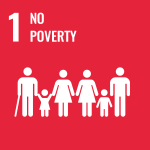
UNHCR is committed to ending poverty by advocating for and supporting refugees to work in their host country. When refugees are able to work, they become self-reliant and are able to provide for themselves and their families, increasing resilience, restoring dignity, and helping entire families to build independent and meaningful futures.
In Pakistan, Zakat funds helped increase the self-reliance, economic and social inclusion of extremely poor refugees and host community members through the ‘poverty graduation’ project; where the distribution of productive assets enabled families to start small-scale businesses.
The communities most at risk for falling below the poverty line include refugees, asylum seekers, internally displaced persons, and returnees. Zakat and Sadaqah funds helped provide critical cash assistance to extremely vulnerable displaced families in Lebanon, Jordan, Iraq, Yemen, Mauritania, and Egypt, helping families to meet their essential needs and preventing those most vulnerable from having to resort to negative coping mechanisms.
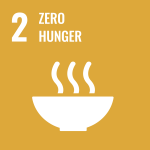
UNHCR has continually supported universal access to safe and nutritious food for the most vulnerable individuals and communities.
Through Zakat funds, UNHCR distributes multi-purpose cash assistance to refugees and IDPs in Iraq, Yemen, Lebanon, Jordan, and Egypt, enabling them to meet their urgent needs, including food.
Ensuring that people have access to adequate nutrient-rich food is essential for protecting the safety, health and well-being of millions who have been forced to flee.
In India, Zakat funds help improve the food security of refugees and host communities through the distribution of food rations to the most vulnerable families including women, children, persons with disabilities and the elderly.
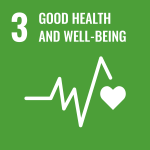
UNHCR strives to facilitate access of refugees and host communities to national healthcare systems. Zakat and Sadaqah funds helped provide multi-purpose cash assistance to refugees and IDPs, enabling them to access services where there are often financial barriers, including health clinics. Our monitoring shows that cash assistance is used in various ways, including essential treatments and medical care, doctor’s fees, and medication.
Sadaqah funds also helped in improving the health status of Sudanese refugees
living in the eastern part of Chad, as well as their host communities, enabling refugees to access essential healthcare services such as hospitalizations, mental health and psychosocial support, essential medication needed for preventive and curative care, as well as providing medical equipment to health centres.
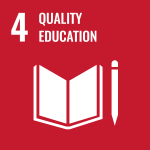
Cash assistance allows refugees to build better futures and is part of UNHCR’s objective to provide longer term solutions to refugees, as well as support education. Dedicating Zakat and Sadaqah funds to the Cash Assistance programme has had a significant impact on the well-being of displaced families. Cash assistance has proven effective in supporting access to education and has helped parents with direct costs such as school fees, uniforms and transportation, addressing barriers that keep children out of school.
Sadaqah funds also helped in improving access to quality education for Sudanese refugees and nearby villages in the eastern part of Chad. The construction and rehabilitation of several classrooms, as well as the maintenance of schools in the area, resulted in better education opportunities for young refugee students.
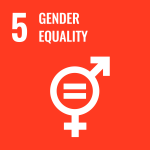
In Lebanon, Jordan, Egypt, Yemen, Iraq, Mauritania, and Chad, Zakat and Sadaqah funds are dedicated towards providing cash assistance to extremely vulnerable families, including female-headed households and their children. Cash assistance helps contribute to protection and gender equality by promoting self-reliance, assisting female entrepreneurs and increasing the independence and empowerment of women to exercise decision-making in the household.
Zakat funds help ensure that vulnerable populations do not resort to negative coping mechanisms due to poverty. When women and girls have equitable access to and control over resources and are able to meaningfully participate in and influence decision making processes, they are rendered less vulnerable to sexual exploitation and negative coping strategies, such as child marriage or forced labour. Equitable access to cash assistance helps facilitate a genuine and positive transformation in discriminatory gender relations, roles and attitudes.
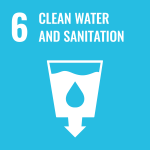
UNHCR is committed to ensuring access to sanitation for vulnerable communities. We have dedicated Zakat funds to provide cash assistance to refugees and internally displaced persons in several countries in MENA and beyond, enabling them access to hygiene and sanitary products and personal protective gear to protect them from COVID-19.
In Chad, Sadaqah funds helped provide Sudanese refugees and host communities with access to safe and clean water through the solarization of water pumps. such as solarizing boreholes to reduce the associated energy costs. Furthermore, the access to water pumps was improved and water sources were built in schools to make sure that refugees have enough water to combat the spread of COVID-19.
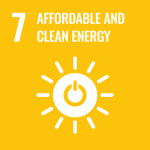
Access to safe and sustainable energy is a basic human need. Without it, the forcibly displaced – particularly women and children – are more vulnerable and have less time to rebuild their lives. At UNHCR, we are committed to addressing the energy needs of refugees, improving access to sustainable fuel, powering health centres and utilizing solar-powered lighting.
Zakat funds in Bangladesh helped provide Rohingya refugees with Liquefied petroleum gas (LPGs), which is available locally in Bangladesh and was assessed as the best fuel alternative for cooking. UNHCR and partners carried out an assessment on the impact of the switch to LPG. The study found that LPG distribution has resulted in an 80% reduction of demand for firewood in the Rohingya households in the camps, reducing deforestation to well within sustainable forestry rates.
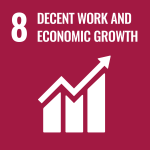
One of the main pillars of UNHCR’s work worldwide is to provide refugees, IDPs, returnees, asylum seekers, and stateless people with equal access to decent and sustainable work regardless of their gender, race, economic or legal status.
UNHCR has contributed Zakat funds towards providing sustainable and decent work for vulnerable communities by supporting income-generating activities in Nigeria and small businesses in Pakistan, as well as providing refugees and displaced persons with the financial and educational resources to ensure that their business can thrive in the long run.
We have also conducted livelihoods programs in several countries to ensure that refugees and IDPs can receive adequate support and training for employment, including but not limited to vocational training.
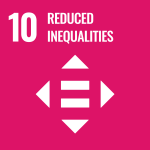
Due to their legal status, refugees often do not have the right to formally work in their host countries, resulting in inequalities of outcome and opportunity. The legal status of refugees often prevents them from having equal access to shelter, healthcare, education, and other services.
Zakat funds helped provide much needed assistance to vulnerable displaced families in Lebanon, Iraq, Jordan, Egypt, Pakistan, Bangladesh, India, enabling them to meet their basic needs and access the essential services needed to rebuild their lives.
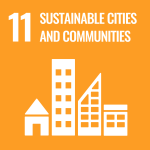
Zakat funds helped provide cash assistance to vulnerable displaced families in Lebanon, Jordan, Iraq, Yemen, Mauritania and Egypt. This assistance has allowed UNHCR to help families maintain access to safe and affordable housing by ensuring that refugees can pay their rent and reduces their risk of eviction.
In emergencies, Zakat funds have also provided shelter and core relief items to refugees, IDPs, and returnees, including tents, tarpaulin, mosquito nets, and waterproofing materials to ensure that families are safe from adverse weather conditions.
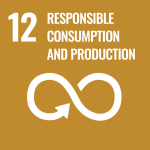
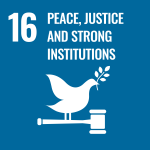
Zakat funds have helped provide vulnerable refugee families with cash assistance to reduce their reliance on negative coping mechanisms such as child labour, trafficking and child marriage.
UNHCR also provides cash assistance to unaccompanied and separated children (UASC – i.e., children under the age of 18 traveling and living alone in displacement) to enable them to survive and access the care and protection they need.
Moreover, UNHCR child protection programmes help prevent sexual and gender-based violence among unaccompanied children by ensuring that they have access to essential social services, including psycho-social support.
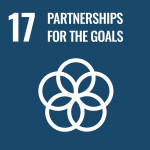
UNHCR has built partnerships with more than 30 diverse partners globally around the topic of Islamic Philanthropy, with the aim of mobilizing additional resources and advocating for the most vulnerable refugee and internally displaced families.

